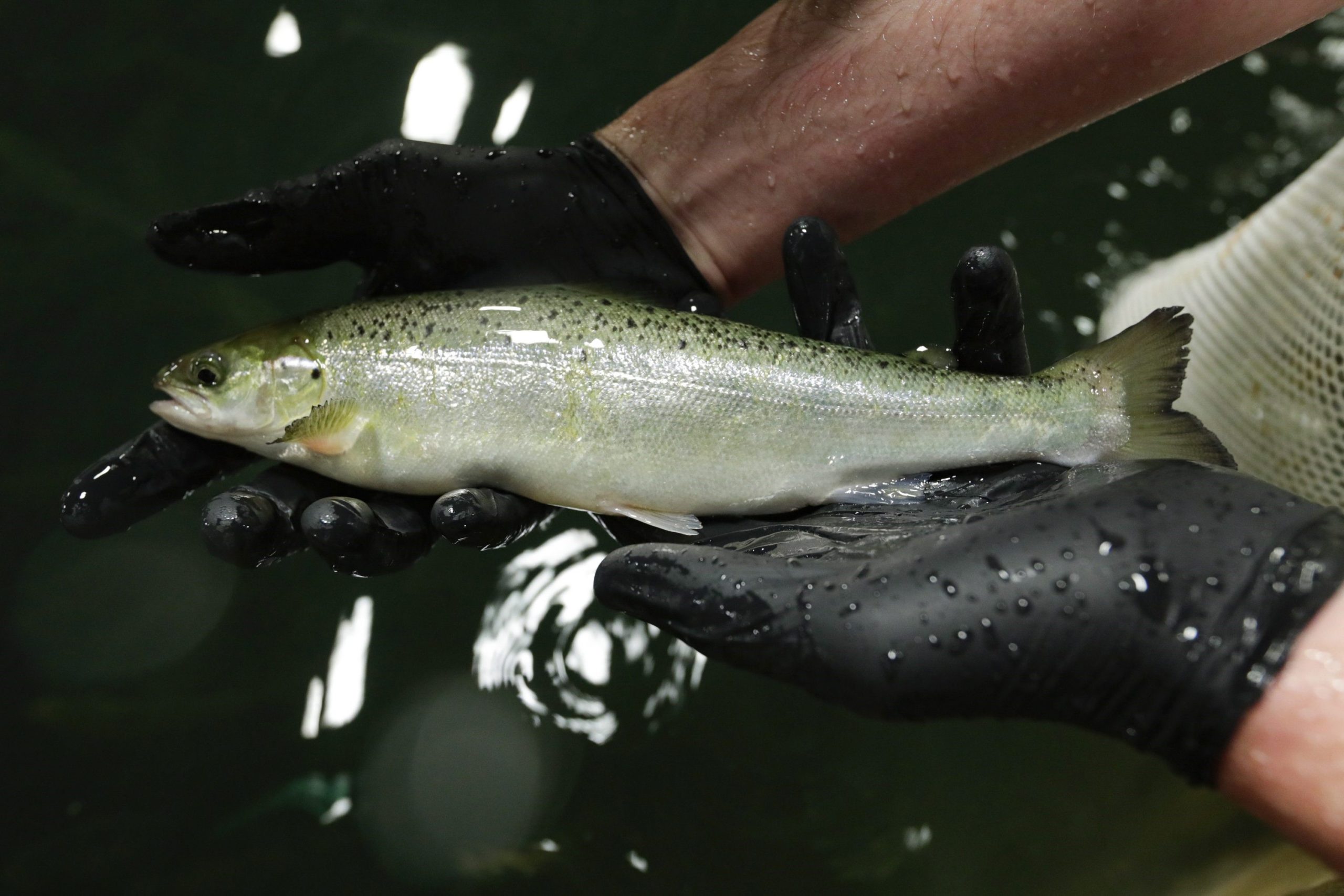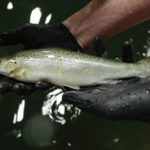First Canadian-grown genetically modified Atlantic salmon being harvested and sold

HALIFAX — A firm pioneering genetically modified salmon in Canada confirmed Thursday it was selling fish from its Prince Edward Island facility, as opponents to modified food offered a reward for any leads on where the fish could be found.
AquaBounty's salmon represent the first genetically modified fish to be harvested and sold in Canada.
The U.S.-based company said in its third-quarter results released Thursdayit has harvested 84 tonnes of salmon from its plants in P.E.I. and in the United States, generating US$402,000 in revenues. AquaBounty said in an email to The Canadian Press all the fish grown in P.E.I. was sold in Canada through "seafood distributors," but didn't disclose details about whether its products are in grocery stores or restaurants.
"All the fish harvested from Rollo Bay, P.E.I., was processed and sold to Canadian customers. No fish harvested from the Indiana farm was sold in Canada," the company said in the email.
Conservation groups have been critical of Ottawa for not requiring the company to label the salmon as genetically modified, arguing that the fish or eggs may one day escape during transport and pose risks to unmodified salmon stocks.
Mark Butler, with the conservation charity Nature Canada, said Thursday in a news release his group has launched a campaign with Quebec-based Vigilance OGM, offering a reward of $500 for any information about the location of AquaBounty's salmon.
A poster on Nature Canada's website says, "Please contact us if you have reason to believe this fish is on a plate near you."
Butler's news release said, "In Canada, at-risk populations of Atlantic Salmon could be outcompeted for food, or if interbreeding were to occur, be fundamentally changed."
A spokeswoman for the Canadian Food Inspection Agency has said AquaBounty's salmon has been evaluated by Health Canada, has been found to be safe for consumers, and can be sold in the country without labelling.
But Lucy Sharratt, co-ordinator of the Canadian Biotechnology Action Network, said in an email Thursday the public should be kept informed about whether they are eating genetically modified salmon.
"We need more transparency about this first-ever Canadian production of GM salmon, more than relying on company reports to the U.S. government," she said about AquaBounty's financial disclosures.
The company on Thursday reported a net loss of US$16.3 million for the first nine months of the year, compared to a net loss of US$10.3 million over the same period last year. The filing to the U.S. Securities and Exchange Commission says that due to the pandemic, there have been labour and transportation shortages "that have slowed the pace and increased the expense of commercial harvests."
The firm said as a result of labour shortages, its salmon stocks saw "increased culling."
AquaBounty's third-quarter financial update said it has received a US$2.3-million grant from the Atlantic Canada Opportunities Agency, as well as two interest-free loans totalling US$471,000 from the federal development agency.
This report by The Canadian Press was first published Nov. 4, 2021.
Michael Tutton, The Canadian Press




